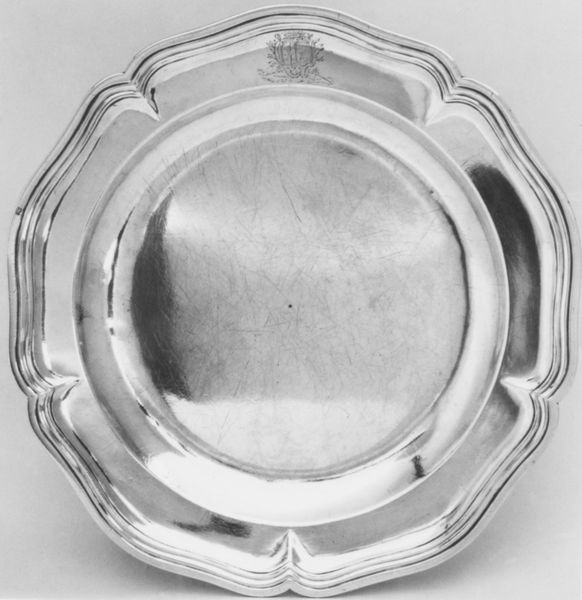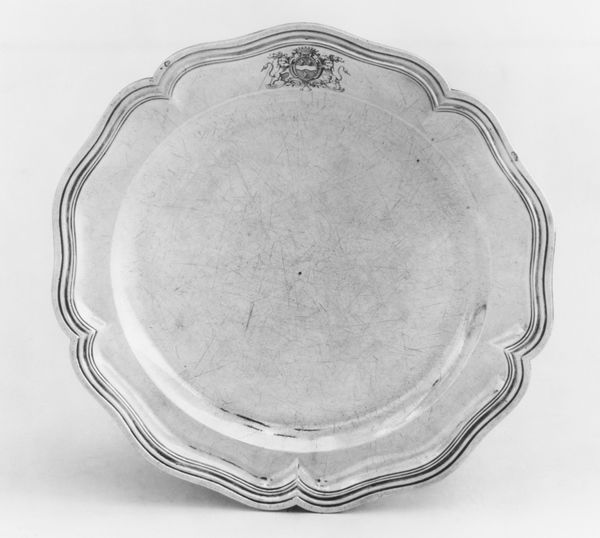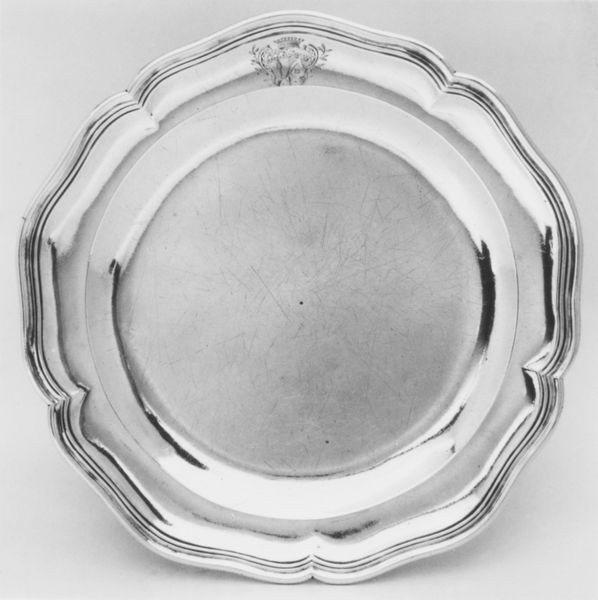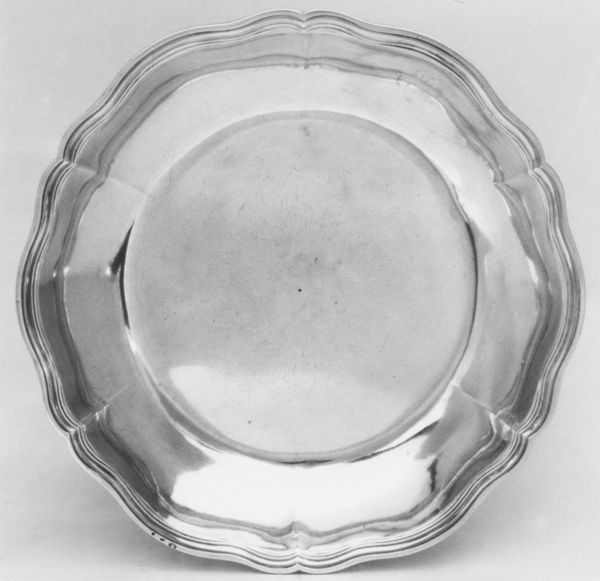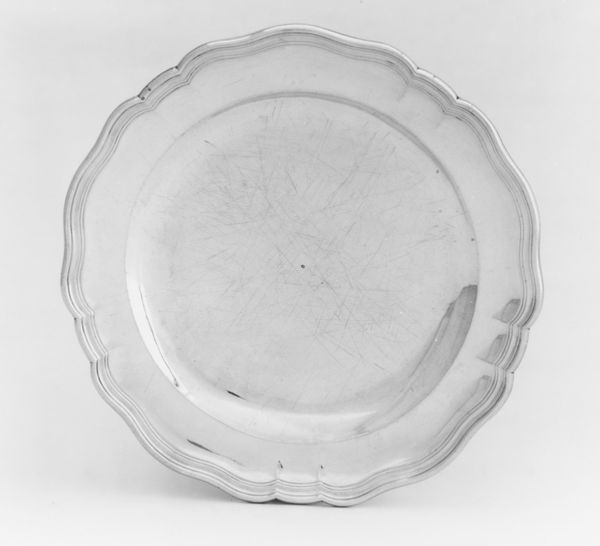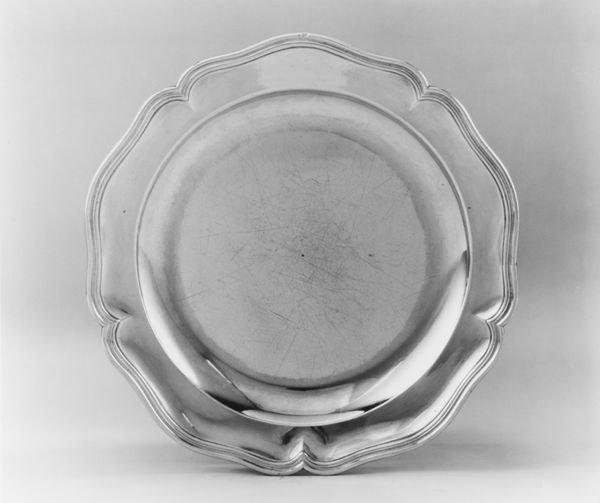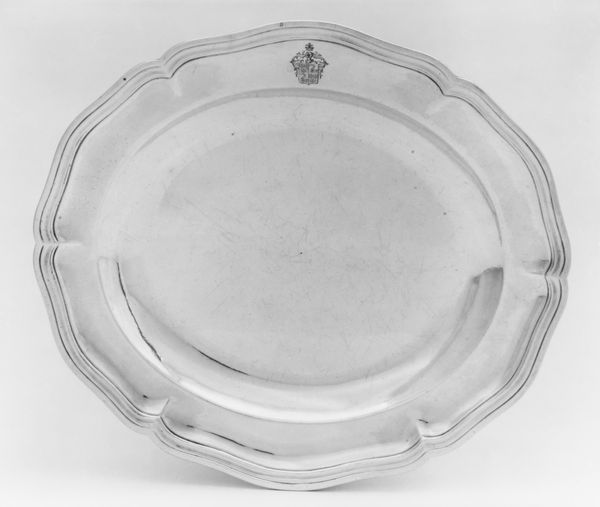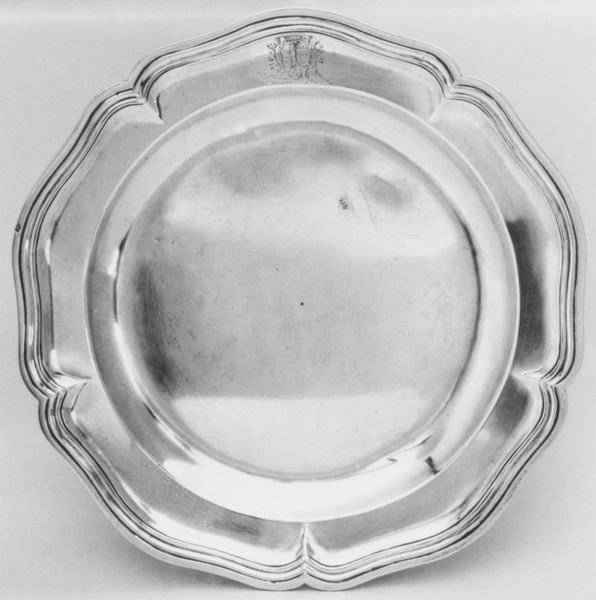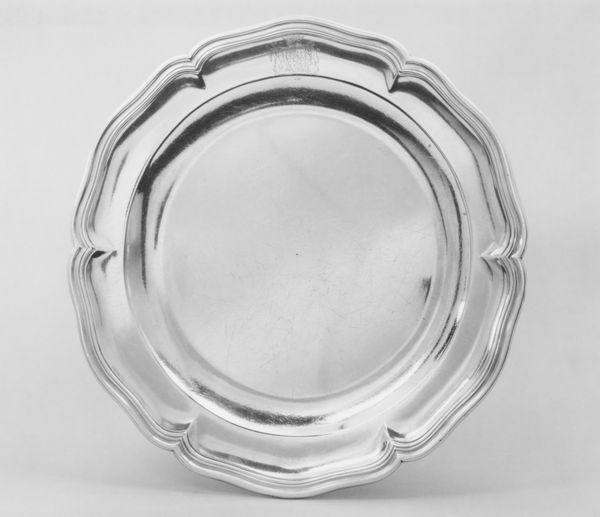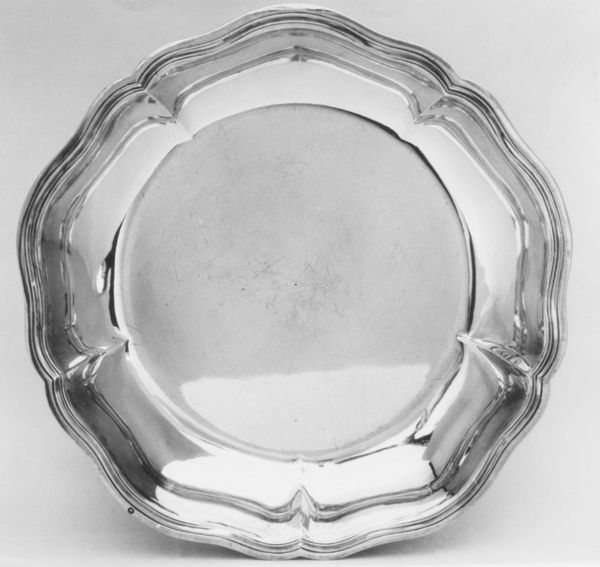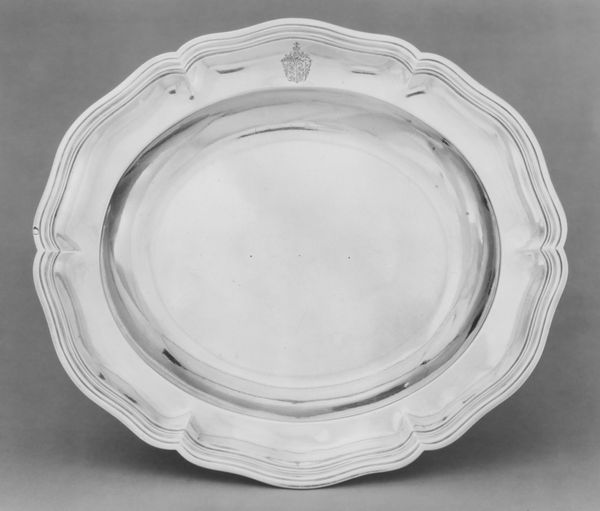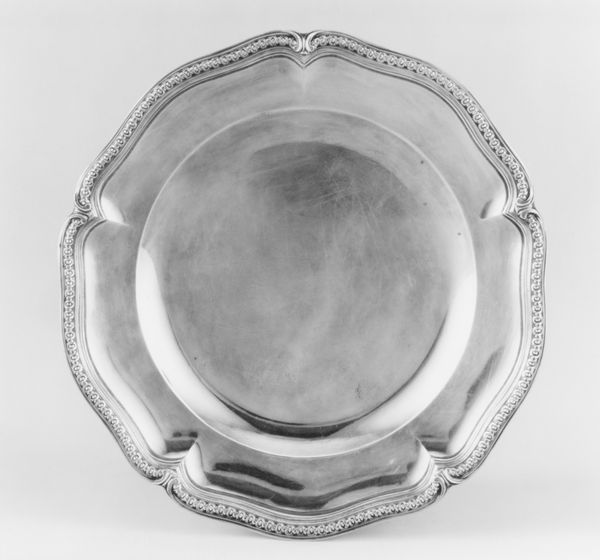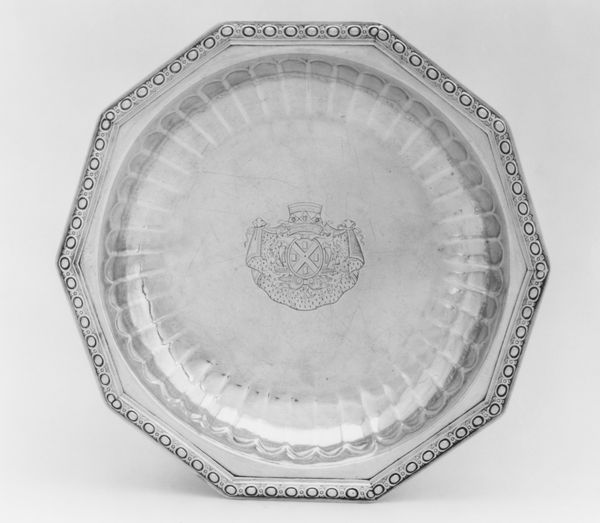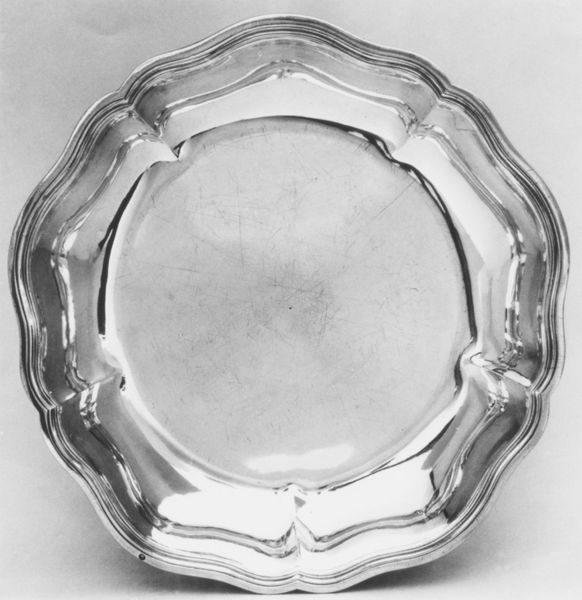
silver, metal
#
silver
#
metal
#
decorative-art
Dimensions: Overall: 1 1/8 × 13 7/8 in. (2.9 × 35.2 cm)
Copyright: Public Domain
Editor: This elegant "Plate," crafted from silver in 1765-1766, feels more symbolic than functional. It's so simple yet feels stately. How might we interpret its imagery? Curator: This piece whispers of power, doesn't it? Notice the crest, positioned as a symbolic crowning element. In what ways might such a visual marker have operated within the social structures of its time? Editor: I see it representing a specific family, claiming legacy. Almost like branding for royalty. Curator: Precisely. These emblems weren’t merely decorative. Think about how displaying such a symbol at the dining table broadcasts lineage and status. Does that amplify or diminish its use for meals? Editor: It feels performative – less about the food, and more about who is eating it and their importance. Do you think the object holds any religious importance? Curator: Silverware has ritualistic implications across cultures and time, think ceremonial presentation of foods at temple. This plate would definitely symbolize that wealth and lineage are blessed or sanctioned by a higher power. It embodies social narratives that are quite telling about that era. Editor: It’s fascinating to see how a simple plate can speak volumes about the past! I had no idea it contained so much layered meaning! Curator: Indeed! Each curve and crest carries centuries of cultural weight, transforming a commonplace object into a profound text of identity.
Comments
No comments
Be the first to comment and join the conversation on the ultimate creative platform.
